The content below is provided by Riverside Health System, a sponsor of H4TG’s A Calendar to Live By/Guide to Caring for Yourself.
Nobody knows your body better than you and that includes your breasts. Most women know that it’s important to have an annual mammogram beginning at age 40 or earlier if you have a family history or other risk factors for breast cancer.
But if you’re younger than 40, you need to “know your breasts.” Develop a regular self-awareness of how your breasts look and feel. What is normal for you? Let your eyes and fingers be your guide in determining the shape of each of your breasts. Set aside any anxiety you might have and take a more proactive approach to ensure that you’re doing everything you can to remain healthy and cancer-free. The American Cancer Society and the American College of Obstetricians and Gynecologists favor this consistent, mindful method for self-detection over the previous recommendation of a monthly breast exam.
WHAT TO LOOK FOR
You don’t have to be a clinician to know what’s normal for your breasts. A change in your breasts does not always indicate breast cancer. Still, be alert for the following signs:
• A lump in the breast or under the arm
• Skin changes, including a dimple, redness or thickening
• Change in breast shape or size
• Nipple discharge
• Scaling or redness of the nipple and/or areola
• Nipple retraction or deviation
• New breast pain
If you notice any of these signs or something that doesn’t look or feel quite right, notify your health care provider immediately so you can be evaluated. Breast cancer in younger women is often more aggressive, so reporting any changes without delay is important. The earlier a cancer is detected, the easier it is to treat.
UNDERSTANDING RISK FACTORS AND WHEN TO CONSIDER GENETIC TESTING
It’s also important to understand your risk factors for developing breast cancer. Risk factors are conditions, characteristics, or behaviors that increase your chances for developing a disease. Many risk factors for breast cancer are out of our control. These include gender, age, genes, family history, dense breast tissue, previous personal history of breast cancer and ethnicity.
If you have a family history of breast cancer, a risk assessment performed by your health care provider should be done at an early age. Based on the results of the risk assessment, you may be referred to a counselor to have genetic testing done to look for genes that may indicate a higher risk for breast cancer (BRCA1, BRCA 2 and many other genes). People with BRCA 1 and BRCA 2 are predisposed to not only breast cancer, but other cancers, including ovarian cancer, pancreatic cancer and melanoma. Based on your results, your health care provider will recommend the age to begin screening that is best for you.
However, there are risk factors that you can control, such as maintaining a healthy weight, limiting alcohol consumption, participating in some form of exercise and not smoking.
You should have your first clinical breast exam beginning at age 21. If you have no family history or increased risk for developing breast cancer, schedule your first mammogram when you turn 40.
REMEMBER, making breast self awareness a regular priority leads to a healthier YOU.
Content provided by Ilene Stephan, M.D., Riverside Cancer Care Network
